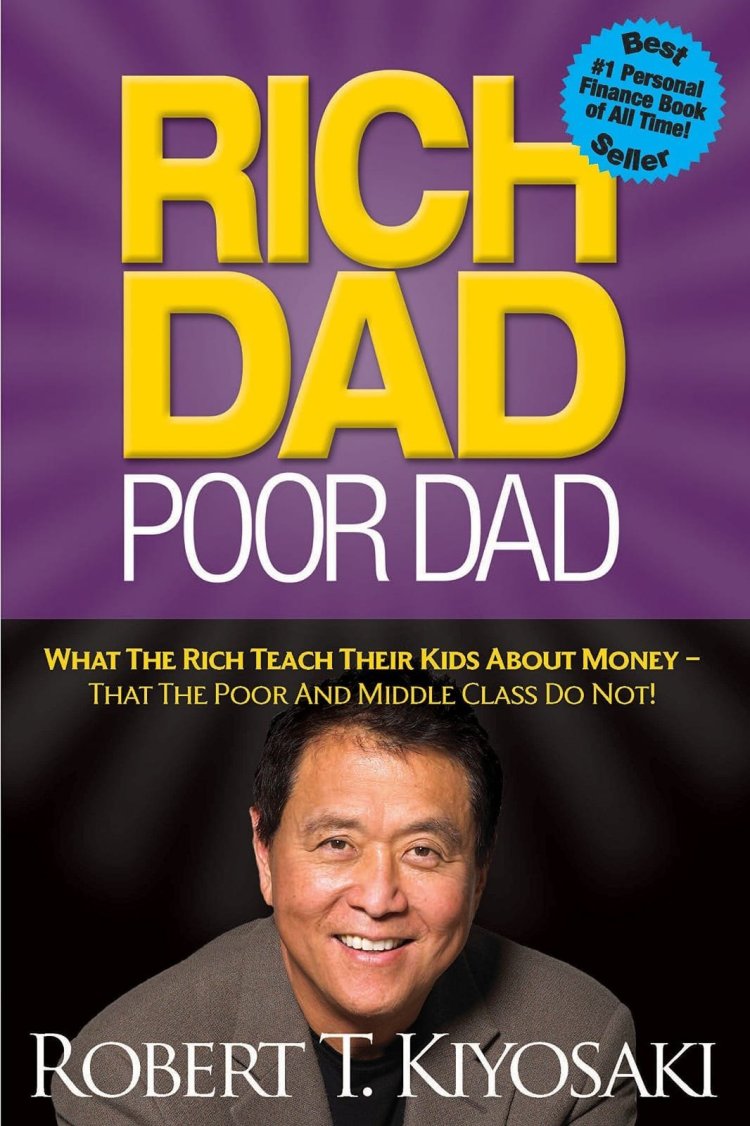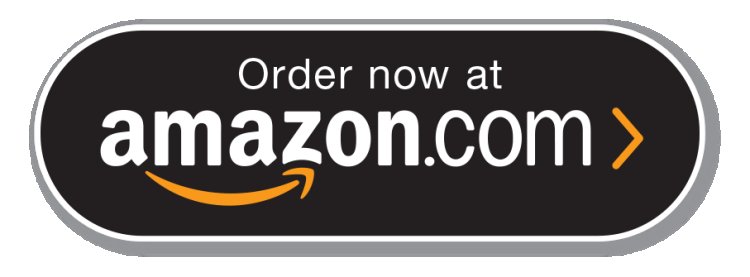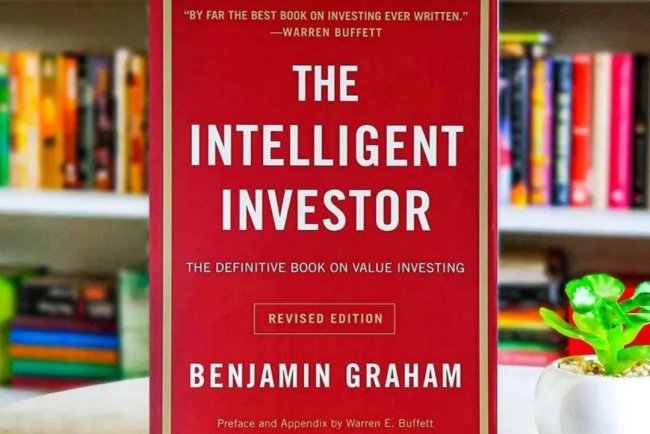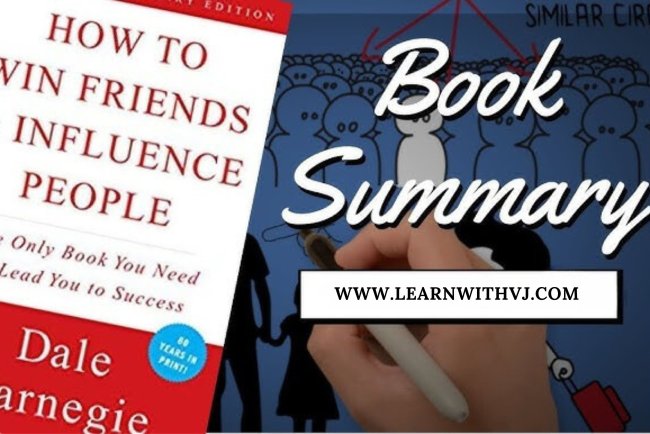Rich Dad Poor Dad: Challenging Traditional Finance Through Personal Anecdotes
"Rich Dad Poor Dad" is a financial self-help book published in 1997 by Robert Kiyosaki, a self-proclaimed entrepreneur and investor. The book takes the form of a personal memoir, contrasting the financial advice Kiyosaki received from his biological father ("poor dad") – a highly educated but financially struggling academic – and his friend's father ("rich dad") – a successful businessman and entrepreneur. Through this contrast, Kiyosaki challenges traditional views on education, employment, and wealth creation, advocating for financial literacy, entrepreneurship, and building assets that generate passive income.

Book: Rich Dad Poor Dad
Author: Robert Kiyosaki with Sharon Lechter
Published: 1997
Pages: 336
Genre: Personal Finance, Self-Help

Key Takeaways:
-
The Rat Race Trap: Kiyosaki criticizes the traditional emphasis on formal education and secure jobs, arguing that relying solely on a salary traps people in a "rat race" of working for money instead of making money work for them. He encourages readers to develop financial intelligence and seek alternative paths to wealth creation.
-
Financial Literacy: The book emphasizes the importance of understanding basic financial concepts, such as assets, liabilities, income, and expenses. Kiyosaki argues that financial literacy is essential for making informed financial decisions and building wealth.
-
The Power of Assets: Kiyosaki makes a clear distinction between assets, which generate income, and liabilities, which drain it. He encourages readers to invest in assets such as businesses, real estate, and intellectual property, rather than focusing on acquiring liabilities like cars and expensive homes.
-
Entrepreneurship: The book promotes entrepreneurship and self-employment as paths to financial freedom. Kiyosaki argues that starting and owning businesses can provide greater control over one's financial destiny compared to relying on a traditional job.
-
Passive Income: Kiyosaki emphasizes the importance of building passive income streams, which generate income regardless of active involvement. He highlights the benefits of owning assets that produce ongoing revenue, such as rental properties or royalties, for achieving financial independence.
Strengths:
- Engaging Narrative: The book's use of personal anecdotes and contrasting characters makes it an engaging and relatable read, even for those with no prior financial knowledge.
- Simple Language: Kiyosaki explains complex financial concepts in clear and concise language, making the book accessible to a wide audience.
- Challenging Traditional Views: The book critiques traditional financial advice and encourages readers to think critically about their relationship with money.
- Emphasis on Financial Literacy: The book's focus on financial education empowers readers to take control of their finances and make informed decisions.
Weaknesses:
- Oversimplification: Some critics argue that the book oversimplifies complex financial concepts and ignores the realities of individual circumstances and economic inequality.
- Lack of Specific Advice: The book provides general principles rather than specific investment strategies or actionable steps, which may leave some readers feeling lost.
- Controversial Claims: Some of Kiyosaki's claims have been disputed by financial experts, such as his characterization of a home as a liability.
Overall:
"Rich Dad Poor Dad" remains a highly influential and controversial book in the personal finance genre. While its oversimplifications and lack of specific advice may frustrate some readers, its core message about financial literacy, entrepreneurship, and building assets holds value. The book encourages readers to challenge traditional financial beliefs and explore alternative paths to wealth creation, making it a thought-provoking read for anyone interested in taking control of their financial future.
Additionally:
- The book's impact extends beyond its content, sparking conversations and debates about financial education, personal responsibility, and the nature of wealth.
- "Rich Dad Poor Dad" has been translated into over 50 languages and sold over 32 million copies worldwide, making it a global phenomenon.
- Kiyosaki has followed up on the success of this book with a series of sequels and related products, building a significant brand around his financial philosophy.
Delving Deeper into Rich Dad Poor Dad: An Expanded Review
Building upon the initial review, let's delve deeper into the controversial masterpiece known as "Rich Dad Poor Dad." We'll explore the nuances of its chapters, dissect its criticisms, and examine the philosophical core of Kiyosaki's message.
Beyond the Binary: Nuances in the "Dad" Dichotomy:
While the central premise hinges on the contrasting perspectives of "poor dad" and "rich dad," Kiyosaki's portrayal deserves additional scrutiny. "Poor dad" isn't solely portrayed as financially unintelligent; he embodies the value of education and intellectual pursuits. Conversely, "rich dad" isn't simply devoid of empathy or moral compass; he emphasizes practical skills and entrepreneurship. This complexity prevents the book from falling into simplistic caricatures and allows readers to glean valuable insights from both characters.
Criticisms Dissected: Debunking Misconceptions and Recognizing Limitations:
- Oversimplification and Lack of Context: Critics argue that Kiyosaki oversimplifies complex financial concepts and ignores systemic factors like economic inequality. While the book may not delve into intricate financial strategies, it effectively sparks initial inquiry and encourages readers to seek further knowledge. Additionally, Kiyosaki's focus on individual agency, while not a complete solution, empowers individuals to take control of their financial trajectories within the constraints they face.
- Controversial Claims: Fact-Checking and Critical Thinking: Some of Kiyosaki's claims, like characterizing a home as a liability, have been contested by financial experts. It's crucial for readers to engage in critical thinking, verify information independently, and adapt Kiyosaki's principles to their specific circumstances.
- Marketing and Branding Concerns: The book's association with Kiyosaki's broader brand and subsequent products raises concerns about commercialization. Readers should remain wary of overinflated claims or aggressive marketing tactics and focus on the core principles conveyed in the book.
Unveiling the Philosophical Core: Beyond Practical Advice:
Beyond the practical financial advice, "Rich Dad Poor Dad" taps into a deeper philosophical questioning of societal norms and conventional wisdom regarding wealth creation. It challenges the traditional focus on formal education and secure jobs, advocating for entrepreneurial thinking, risk-taking, and financial independence. This core message resonates with many, particularly those seeking alternative paths to financial security and personal fulfillment.
Expanding the Conversation: Beyond the Pages:
The book's impact extends far beyond its pages, sparking discussions about financial education, personal responsibility, and the very definition of wealth. It has spurred numerous debates, online communities, and educational initiatives around the world. While not everyone agrees with its message, the book's ability to provoke dialogue and challenge accepted financial narratives is undeniable.
Conclusion: A Provocative Catalyst for Financial Exploration
"Rich Dad Poor Dad" remains a controversial yet impactful book in the personal finance landscape. While its oversimplifications and lack of specific financial advice deserve consideration, its engaging narrative, emphasis on financial literacy, and questioning of traditional financial norms make it a valuable resource. The book is not a self-help panacea, but rather a catalyst for individual exploration, critical thinking, and a shift in perspective towards building financial independence. Whether you wholeheartedly agree with its message or find it inherently flawed, "Rich Dad Poor Dad" undoubtedly provides a platform for questioning your relationship with money and exploring alternative paths to financial well-being.
Rich Dad Poor Dad: Statistical Dive and Impactful Numbers
To complement the in-depth analysis of "Rich Dad Poor Dad," let's dive into some compelling data and statistics that showcase its reach, impact, and the financial landscape it critiques.
Global Phenomenon:
- 32+ Million Copies Sold: Since its 1997 release, "Rich Dad Poor Dad" has sold over 32 million copies worldwide, solidifying its status as a global bestseller.
- 51+ Languages Translated: Translated into over 51 languages, the book transcends cultural barriers and resonates with readers across diverse backgrounds.
- 109+ Countries Reached: Available in over 109 countries, "Rich Dad Poor Dad" has sparked financial conversations and challenged traditional narratives on a global scale.
Financial Landscape Critique:
- Average American Household Debt: In 2023, the average American household carried a staggering $143,370 in debt, highlighting the widespread reliance on liabilities Kiyosaki criticizes.
- Student Loan Debt Burden: As of 2023, outstanding student loan debt in the US exceeded $1.7 trillion, emphasizing the need for alternative paths to financial security beyond traditional education.
- Income Inequality Gap: The wealth gap between the rich and poor continues to widen, prompting discussions about systemic factors impacting financial mobility, a topic Kiyosaki touches upon.
Impact and Legacy:
- Financial Education Initiatives: Inspired by the book, numerous financial education initiatives and programs have emerged, empowering individuals to take control of their finances.
- Entrepreneurial Spirit: "Rich Dad Poor Dad" has fueled the entrepreneurial spirit of many, encouraging individuals to pursue business ventures and seek alternative income streams.
- Shifting Financial Paradigms: The book's challenge to traditional financial norms has sparked ongoing debates and reevaluations of how individuals think about and approach wealth creation.
Remember:
While statistics paint a picture, it's crucial to engage critically with the information presented. Use data as a springboard for further exploration, questioning, and personal reflection on your own financial journey.
By combining the insights gleaned from "Rich Dad Poor Dad" with a critical analysis of data and diverse perspectives, you can equip yourself with the knowledge and understanding to navigate your own financial path with informed wisdom.
Disclaimer: Navigating Financial Seas with Caution
This article explores "Rich Dad Poor Dad" in detail, including its controversial aspects and criticisms. While it aims to provide a comprehensive analysis, it's important to remember that:
- Financial information is complex and evolving: This article and the book itself offer general principles and perspectives, not personalized financial advice. Always consult with qualified financial professionals before making any major financial decisions.
- Individual circumstances vary: Each person's financial journey is unique, shaped by factors like income, expenses, debt, and access to resources. What works for one person may not be suitable for another.
- Critical thinking is essential: Approach all financial information, including this article, with a critical eye. Fact-check claims, research further, and consider diverse perspectives before forming your own opinions.
Remember, your financial well-being is your responsibility. Use the information presented here as a springboard for further exploration, informed decision-making, and ultimately, taking control of your own financial future.
Additional Links for Your Financial Voyage:
- National Endowment for Financial Education (NEFE): https://www.nefe.org/
- Financial Industry Regulatory Authority (FINRA): https://www.finra.org/
- Consumer Financial Protection Bureau (CFPB): https://www.consumerfinance.gov/
- Investopedia: https://www.investopedia.com/
- Khan Academy Personal Finance: https://www.khanacademy.org/college-careers-more/personal-finance
These resources offer valuable information, tools, and guidance on various aspects of personal finance, empowering you to make informed decisions and navigate your financial journey with confidence.
What's Your Reaction?



















